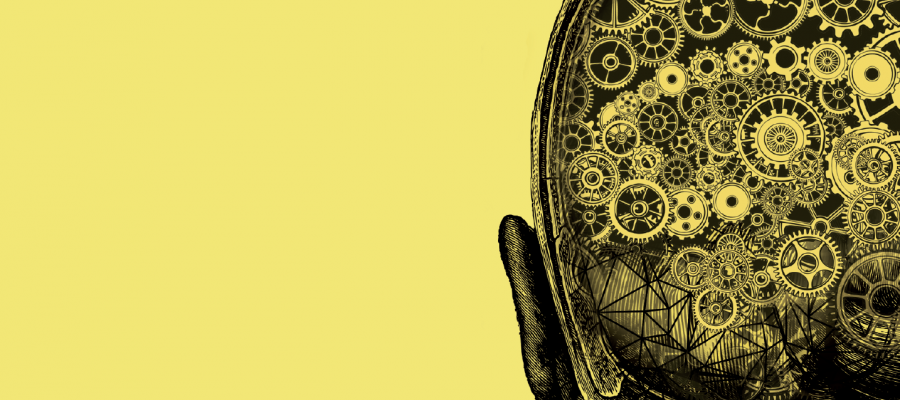The Power of Prediction
Apr 30, 2023You’re standing at the top of a mountain, surveying the vast landscape below. The information your senses take in flows to your brain, ...

Our minds are amazing prediction machines—and sometimes they can even make their predictions come true!
Does reading that strike you as something out of The Secret—like if you believe in something hard enough, you're going to "manifest" it, and it will drop down out of the heavens and into your hands?
Hopefully not, because there's nothing mystical or magical here—we're just talking about the kind of thinking we do all the time. Let's say you’re a little thirsty, and there’s a nice glass of lemonade in front of you. You imagine reaching your hand out and grabbing the glass. You predict the way it’s going to feel when you bring it to your face and take a sip. Then you do it—you make your prediction come true!
Now you could argue that it didn’t come true because you predicted it, but rather because you did it. So let’s take a different example: stereotype threat. Women are often told they’re no good at mathematics, and some of them internalize that prejudice. As a result, they end up doing worse at math. If you predict you’re going to do poorly, you do worse; if you predict you’re going to do well, you do better. Some of our predictions really are self-fulfilling prophecies.
Results like that are pretty worrying. So why not ditch all of our faulty predictions, and just stick with the data? The answer is that those very data are affected by our predictions. Take stereotype threat again: because the culture at large wrongly predicted that women couldn't be mathematicians, very few women used to go into mathematics. So if you looked at the data in 1980, say, you might have concluded—erroneously—that mathematics was a field for men. The predictions skewed the data.
Worse than that—the brain's predictions even affect the evidence of our senses. Seeing isn't believing—seeing is predicting. And so is hearing: listen to this clip of somebody saying GREEN NEEDLE—or is it BRAINSTORM? You hear it differently each time, because you're expecting different things. That shows that whenever you sense something, you’re really just predicting.
You might object that cases like these are a bit anomalous. When’s the last time someone said “green needle” or “brainstorm” to you in a distorted voice, in a situation where there’s literally no context to guide you? And in general, the idea that everything is prediction seems to lead to a regress. If our predictions are based on observations, and our observations are themselves driven by predictions, then we're going to end up with predictions based on predictions based on predictions, and we’ll never find that glass of lemonade. We could die of thirst thanks to this terrible theory!
We predict that our guest will clear all of this up for us, or at least make us a nice glass of lemonade. It’s Andy Clark, Professor of Cognitive Philosophy at the University of Sussex and author of a brand-new book, The Experience Machine: How Our Minds Predict and Shape Reality.
Comments (3)
Alyssa
Thursday, March 14, 2024 -- 3:59 AM
As a neuroscientist, I affirmAs a neuroscientist, I affirm the brain's role as a prediction machine, constantly interpreting sensory inputs to anticipate and navigate our environment. Predictive processing theory elucidates how the at&t internet and cable bundle brain generates expectations based on prior experiences, shaping perception and behavior. Understanding this mechanism sheds light on cognition and consciousness.
Pallarcups
Monday, April 22, 2024 -- 11:59 PM
Thanks for the information.Thanks for the information. geometry dash scratch is a fun fast-pace game which can enhance your agility and control skills.
kennthkane
Thursday, May 30, 2024 -- 5:33 AM
Discover the premierDiscover the premier assignment assistance with Best Assignment Help Australia, where expert guidance meets unparalleled quality. Tailored to the unique needs of Australian students, our service ensures top grades and academic excellence. Choose us for reliable, timely, and professional support.